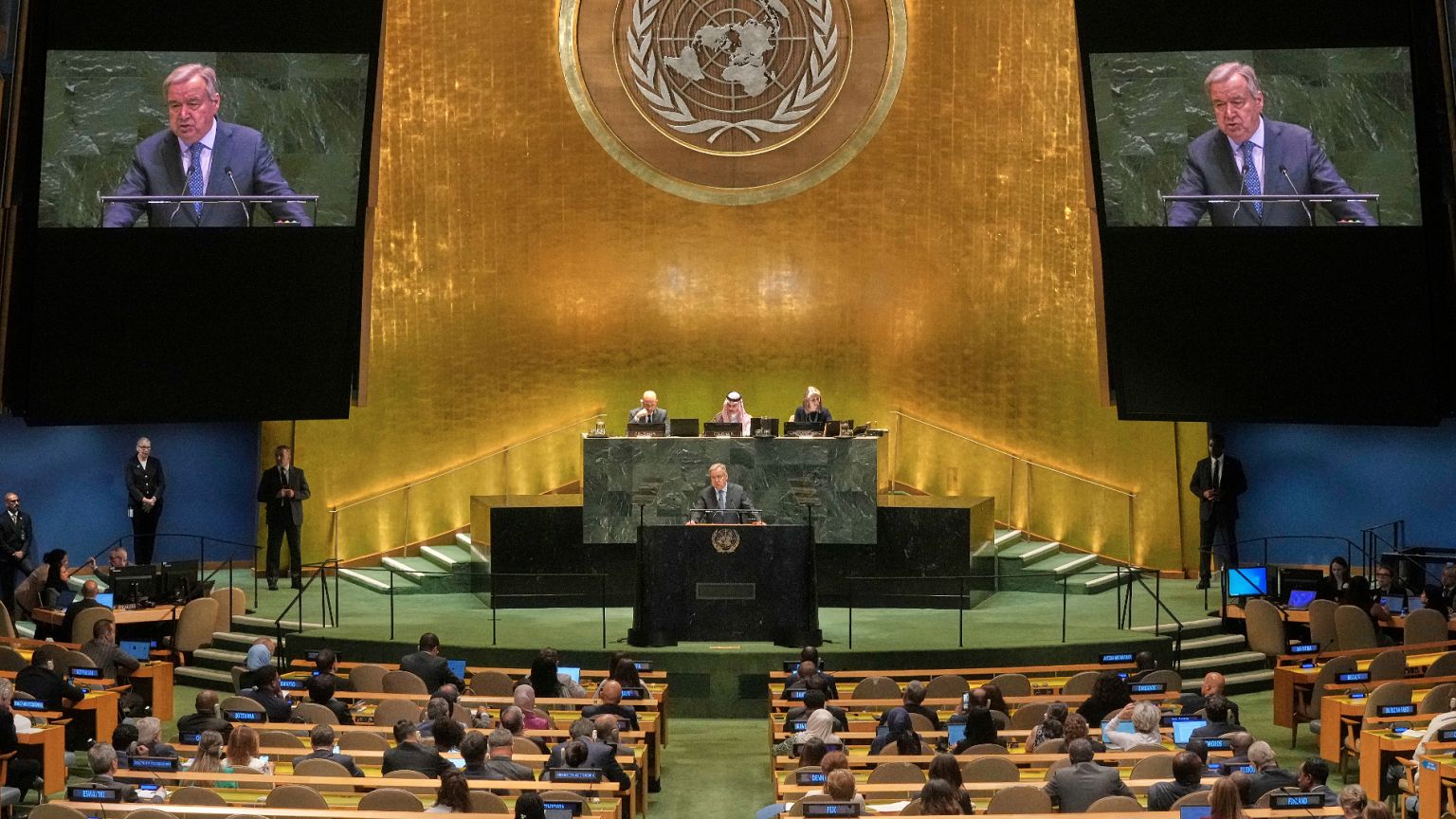Top Stories
EU and Arab League Back Two-State Solution, Urge Disarmament of Hamas

The European Union and the Arab League have reaffirmed their support for a two-state solution to the Israeli-Palestinian conflict, as outlined in a new declaration from a recent United Nations conference. This document, known as the “New York Declaration,” calls for the disarmament of Hamas and the establishment of a Palestinian state governed by the Palestinian Authority.
High-level representatives convened on March 15, 2024, at the United Nations Headquarters in New York for an international conference co-chaired by France and Saudi Arabia. This meeting aimed to address the ongoing war in Gaza and revitalize efforts towards a peaceful resolution. The conference resulted in the seven-page declaration that proposes a phased plan for recognizing the state of Palestine.
The declaration emphasizes the necessity for Hamas to relinquish its control over Gaza. It states, “In the context of ending the war in Gaza, Hamas must end its rule in Gaza and hand over its weapons to the Palestinian Authority, with international engagement and support.” This approach is intended to align with the ultimate goal of establishing a sovereign and independent Palestinian state.
International Support and Condemnation
The New York Declaration also calls for the deployment of a temporary international stabilization mission under the auspices of the UN Security Council. This mission would aim to protect Palestinian civilians, oversee the transition of governance to the Palestinian Authority, and ensure adherence to a ceasefire.
Notably, the declaration condemns the deadly attacks carried out by Hamas on October 7, 2023, which resulted in the deaths of approximately 1,200 people and the abduction of around 250 individuals, with about 50 still held hostage. This marks a significant moment, as it represents the first official condemnation of Hamas by Arab nations. Additionally, it denounces Israel’s military actions in Gaza, which have led to more than 60,000 Palestinian deaths, describing the situation as a “devastating humanitarian catastrophe.”
Co-chairs France and Saudi Arabia are urging all 193 UN member states to support the declaration ahead of the 80th session of the UN General Assembly, scheduled for mid-September 2024.
Political Reactions and Future Steps
Israeli Prime Minister Benjamin Netanyahu has expressed opposition to the two-state solution, citing national security concerns and dismissing the recent conference as unproductive. The United States, a staunch ally of Israel, also chose to boycott the event, reflecting its ongoing alignment with Israeli policy.
Despite the challenges, France and the United Kingdom have signaled their intent to recognize Palestine formally. French President Emmanuel Macron announced that France would pursue recognition at the upcoming UN General Assembly, positioning it as the first G7 nation and permanent UN Security Council member to take this step. Similarly, UK Prime Minister Keir Starmer has indicated that Britain would recognize Palestine before the General Assembly meeting if Israel does not agree to a ceasefire and a long-term peace process within the next eight weeks.
The developments from the UN conference and the subsequent declaration highlight an ongoing commitment from key international players to seek a resolution to the Israeli-Palestinian conflict, underscoring the urgency of establishing a peaceful and stable future for the region.
-

 Top Stories3 months ago
Top Stories3 months agoTributes Surge for 9-Year-Old Leon Briody After Cancer Battle
-

 Entertainment4 months ago
Entertainment4 months agoAimee Osbourne Joins Family for Emotional Tribute to Ozzy
-

 Politics4 months ago
Politics4 months agoDanny Healy-Rae Considers Complaint After Altercation with Garda
-

 Top Stories4 months ago
Top Stories4 months agoIreland Enjoys Summer Heat as Hurricane Erin Approaches Atlantic
-

 World5 months ago
World5 months agoHawaii Commemorates 80 Years Since Hiroshima Bombing with Ceremony
-

 Top Stories3 months ago
Top Stories3 months agoNewcastle West Woman Patricia Foley Found Safe After Urgent Search
-

 Top Stories5 months ago
Top Stories5 months agoFianna Fáil TDs Urgently Consider Maire Geoghegan-Quinn for Presidency
-

 World5 months ago
World5 months agoCouple Convicted of Murdering Two-Year-Old Grandson in Wales
-

 World5 months ago
World5 months agoGaza Aid Distribution Tragedy: 20 Killed Amid Ongoing Violence
-

 World5 months ago
World5 months agoAristocrat Constance Marten and Partner Convicted of Infant Murder
-

 Top Stories4 months ago
Top Stories4 months agoClimbing Errigal: A Must-Do Summer Adventure in Donegal
-

 Top Stories4 months ago
Top Stories4 months agoHike Donegal’s Errigal Mountain NOW for Unforgettable Summer Views








